Crisco has been vaguely referred to as “lard” in the past. Lard is an animal fat that was used a lot in food before doctors told people about how bad it was for their health. Although Crisco never contained lard, many vegans still speculate on this answer: Is Crisco vegan?
Crisco is actually vegetable shortening and is quite vegan. It is often used as an alternative to butter in baking pies. Crisco also overrides the shortcomings of coconut oil when it comes to baking. Even so, there are still questions about Crisco’s few bad ingredients and its effects on health as a whole.
Does Crisco have dairy?
No, Crisco does not have dairy. Crisco contains vegetable oil (soybean oil), fully hydrogenated palm oil, palm oil, TBHQ, mono- and diglycerides, and antioxidants. There are no animal products or dairy in Crisco. However, it contains some controversial ingredients, so read on.
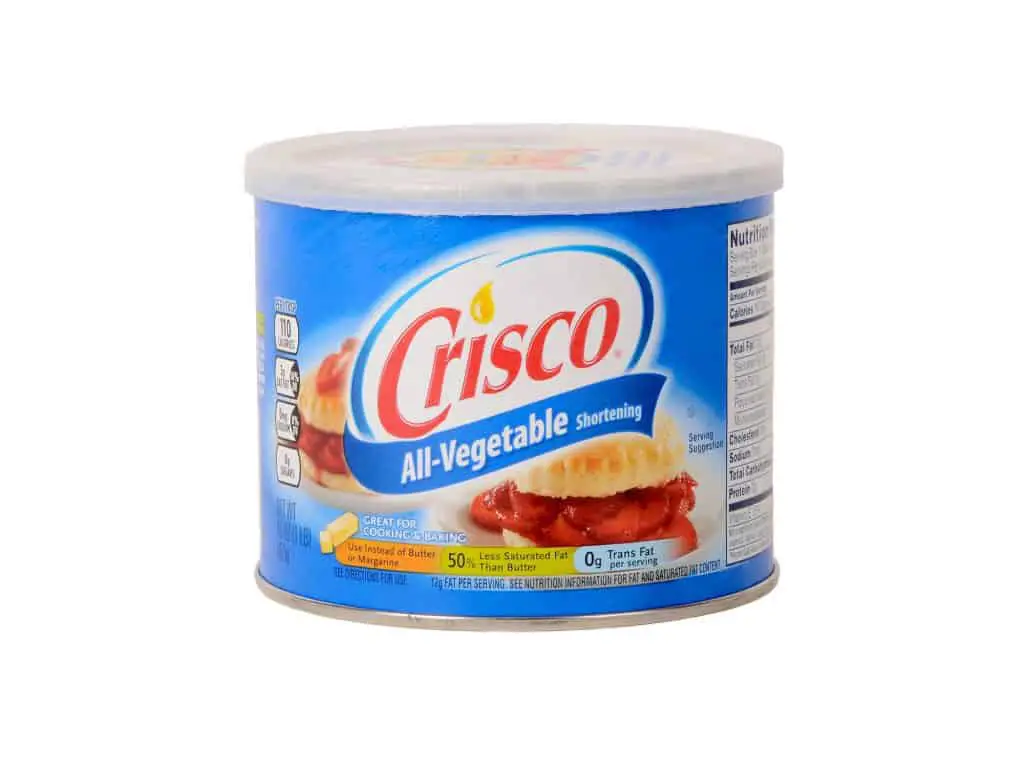
Can vegans eat Crisco shortening?
Yes, vegans can technically eat Crisco shortening. There are no animal products in Crisco. But there are some questionable ingredients that many vegans avoid. You’ll have to decide for yourself if you’re comfortable eating those ingredients or not.
Is Crisco butter flavor vegan?
Yes, the butter flavor shortening from Crisco is vegan. There are no animal ingredients or dairy products in the butter flavor shortening. However, some ingredients are controversial for vegans, and many are not comfortable using this product.
Vegans are suspicious of some ingredients in Crisco
Crisco does call this an “all-vegetable shortening”, the truth is, Crisco is too highly processed to be called a completely vegan vegetable shortening. Although there are no directly non-vegan ingredients: soybean oil, fully hydrogenated palm oil, palm oil, TBHQ, mono and diglycerides, and also citric acid as an antioxidant. Crisco is mostly made of vegetable oil.
Crisco doesn’t contain any dairy or animal-based products, not even in the butter flavor. There is no evidence of butter or cream except the qualities. This makes Crisco a good replacement for margarine and lard, even in non-vegan kitchens.
No animal fats are used in Crisco. The main constituents are soybean and palm oil. Its Kosher certification further proves the lack of animal fats. The only problematic ingredients are mono and diglycerides and palm oil.
Mono and diglycerides are a doubtful ingredient
Mono and diglycerides serve the purpose of emulsification in the shortening. It is known in the vegan community that this ingredient can be obtained from both plant and animal-based sources.
It isn’t known where the mono and diglycerides used in Crisco are obtained from. Some vegans choose to ignore the speculation around doubtful ingredients and consume the product anyway.
It is difficult for stricter vegans to assume that they may probably have been obtained from a plant-based source.
The manufacturers of Crisco once clarified that all ingredients used in their products are sourced from vegetables. Crisco is vegan if your speculation was solely about mono and diglycerides.
Palm oil is environmentally unethical
Palm oil is often considered vegan because it is essentially plant-based and derived from palm plants. The truth about palm oil is not so simple. Palm oil comes from commercial palm plantations that are very big and cause many problems for the environment, society, and ethics.
The production of palm oil results in large areas of unreplenishable rainforests uprooted to make space for the increasing capitalist demand of palm oil. This has resulted in significant losses of rare fauna and flora species. Environmentalists worry that many species of plants and animals that haven’t been found yet will have been wiped out.
Endangered animals have been pushed to the edge of survival. They have to struggle even more to find adequate food and shelter. This has led to a sharp decline in the viable populations of the orangutan, the Bornean pygmy elephant, the Sumatran rhino, and the Sumatran tiger. The fast-growing plantations have conquered their natural homes.
The rampant deforestation, along with the notorious release of methane gas from these plantations, has resulted in a spike in global warming. We keep making small changes to try to stop global warming, but our reliance on palm oil makes all of them useless.
The labor employed in these plantations is far from fair and ethical. The poor laborers are bonded by meagre contracts that abuse and scald them for their lives. Children, women, and men all work in unhealthy places that are not good for their growth or survival.
Many vegans choose to avoid palm oil while others deem it as going too far. It’s important to make sure that all of the things you buy are made ethically and follow fair trade rules.
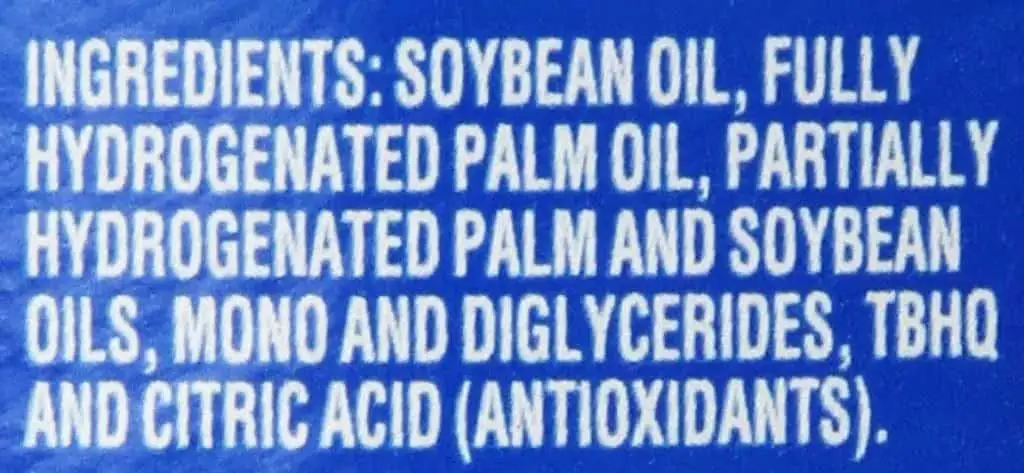
Vegans may choose to boycott brands that practice animal testing
From 1911 to 2002, Crisco was owned by Procter & Gamble. The company continues to participate in animal testing and many vegans boycott Procter & Gamble for this reason. You may have been suggested by vegans to avoid this brand that engages is animal cruelty.
Crisco is now owned by J.M.Smucker and the new parent does not conduct animal testing for any of its products. Purchasing Crisco now will not contribute to animal testing.
Crisco is not good for your health
Despite being vegan, Crisco cannot be classified as a healthy addition to your diet. As a vegan lifestyle and diet is meant to improve your overall well-being while reducing animal suffering, Crisco is one food that can actually contribute to more health problems and health risks.
The calorie content in Crisco is very high as compared to the nutritional value. There are no carbohydrates, proteins, minerals, or vitamins in this product.
The total fat content in each serving of Crisco is much higher than butter or coconut oil that it often replaces. The company mentions on the label that Crisco contains 50% less saturated fat than butter. This is not true.
In many countries, Crisco claims to contain zero% trans fat in each serving. This is completely false. The amount of trans fat in Crisco is indeed less than 1% but it isn’t really zero.
Vegans often worry about the use of hydrogenated oil in Crisco. It has been linked with a variety of health issues. Hydrogenated oil is known to cause a wide range of health issues. It can lead to increased sugar levels in the blood and heighten the risk of diabetes. There is also the danger of developing heart disease.
Regular consumption of Crisco could result in weight gain because Crisco has 100% fat content. And the fact that it has no nutritional value makes it empty calories that don’t do anyone good.
People with a soy allergy should remember that soybean oil is one of the key ingredients in Crisco. Such highly processed food items cannot be really known as whole food.
Processed foods should be minimized or reduced in vegan diets.
There are healthier alternatives to Crisco
The healthiest alternative to Crisco is coconut oil. Just like Crisco, coconut oil is also solid at room temperature and melts when heated. It can be easily used for similar applications. An easy healthy alternative available in most stores.There are many healthier options!
Coconut oil is also not as much processed as Crisco
Moreover, unlike Crisco, coconut oil shortening is not hydrogenated. Coconut oil is thought to be a magic ingredient with many health benefits, while Crisco doesn’t have any carbs, proteins, minerals, or vitamins.
Regular use of Crisco could result in a drastic increase in weight. On the other hand, coconut oil can assist in weight loss. Coconut oil also does wonders for hair and skin.
Crisco raises the sugar content in your blood and predisposes you to develop diabetes and heart problems. Some investigations prove that coconut oil increases the levels of good cholesterol (HDL) in the blood. Others have proven that both bad and good cholesterol levels are increased by coconut oil, so processed food may not ever be actually good for health.
Although coconut oil may easily be called the healthiest amongst all other available options, it doesn’t do as well as a shortening agent as Crisco.
Crisco has a higher melting point which ascertains that the dough will be raised and firm while baking. It takes some practice to attain equally good results with coconut oil.
It is important to consider that coconut oil adds a distinct coconut flavor to the food which you may not always want.
Olive oil and sunflower oil can come to the rescue when you don’t want a distinct coconut flavor
Olive oil and sunflower oil exist as liquids at room temperature. They can be very well used in frying but may not work as well as leavening agents.
Go for vegan-friendly butter or margarine
Unlike sunflower oil and olive oil, vegan margarine and vegan butter exist in a solid-state at room temperature and melt when heated. This makes them capable of being used as good alternatives to Crisco or coconut oil in baking.
You always need to practice when using new ingredients. Find out what quantity of butter or margarine works best for your recipe.
On a final note, Is Crisco vegan?
Many people think of Crisco as a blessing because it can be used instead of unhealthy butter. While that may not be true, Crisco is definitely vegan to an extent as no ingredients show animal sources. Crisco can be considered vegan butter.
Although highly processed foods show health concerns and are often not advised in vegan diets, it is vegan when it comes to the ingredients. For health reasons, it might be best to go for the healthy options.
Mono and diglycerides and palm oil are the only problematic ingredients present in Crisco.
We personally recommend you to not worry about the possibly non-vegan ingredients. It is always possible that they are vegan. Your avoidance of minor non-vegan ingredients will not have as much impact,
When it comes to palm oil, it is ethically non-vegan. Palm oil cultivation has been disastrous for our planet and its continued use needs to be stopped.
So is Crisco vegan? It really depends if you are a “strict vegan” or not. And whether you avoid ethically non-vegan products.


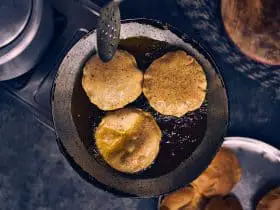

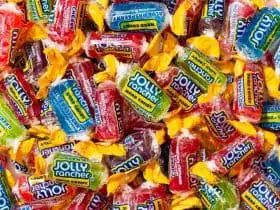

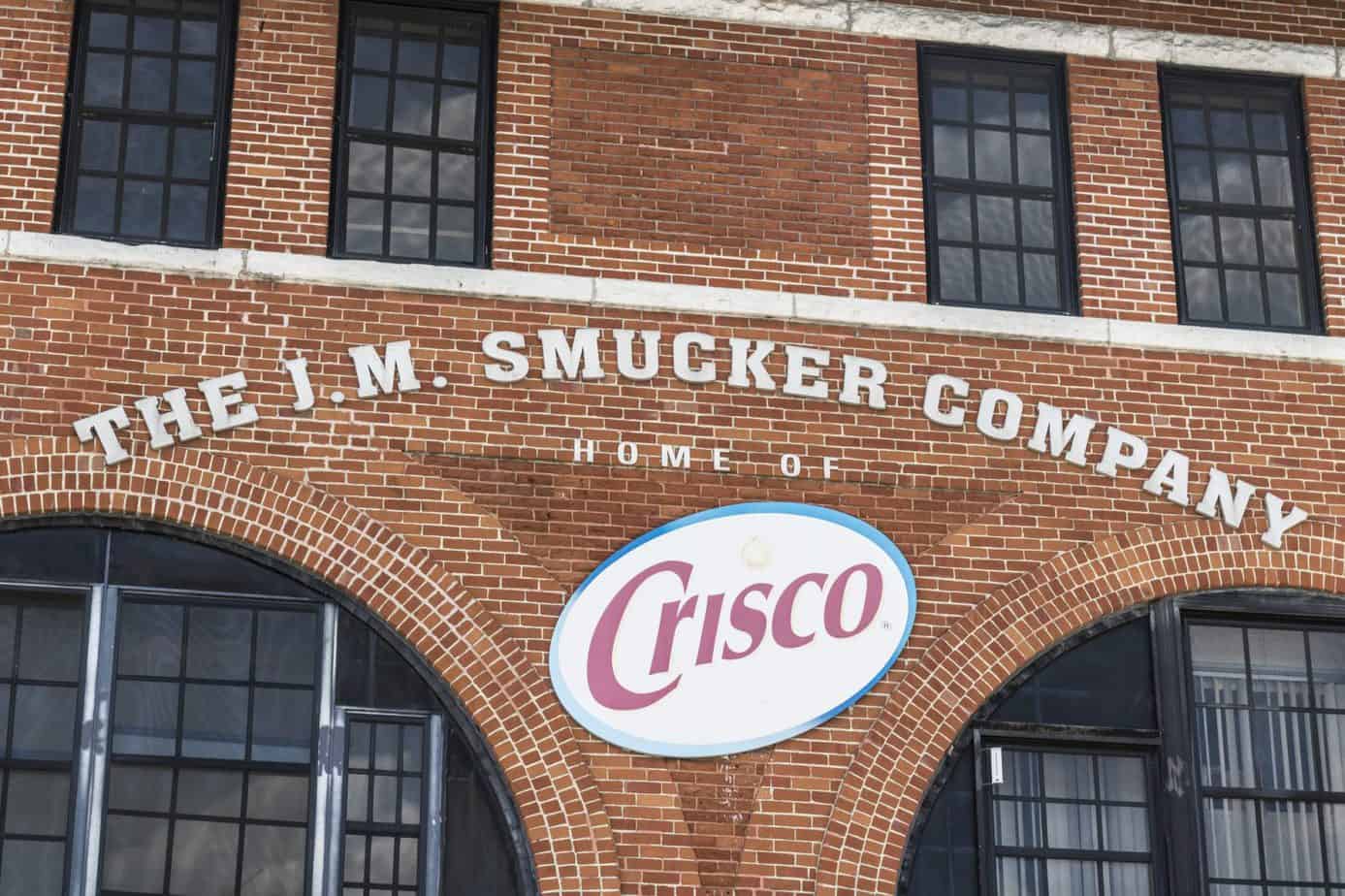
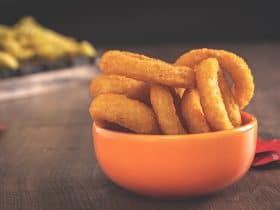

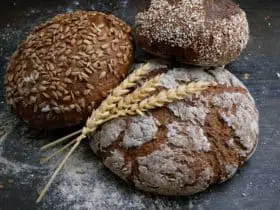


Leave a Reply